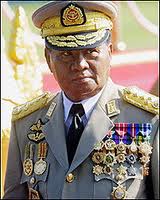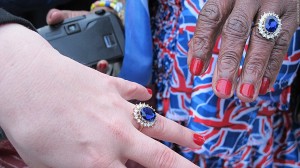This summer our daughter headed off on a very rigorous hiking and camping experience in Alaska. The website didn’t try to sugarcoat the experience, warning that participants would carry 50 to 60 lb packs over mountain ridges, that it could continually rain or even snow, and that due to the threat of grizzly bears, absolutely everything would be done in groups; there would never be an minute of privacy. Furthermore, there would be no bathing for a month. I tried to prepare her for the struggles ahead and mentioned that this trip might be the hardest thing that she would ever do. She calmly looked at me and said, “I have already done the hardest thing – I went to that soccer camp in Wisconsin.” She stuck to this story even when she returned happy and healthy from Alaska, suggesting that we had inadvertently sent her to a hellish soccer camp that should be investigated for child abuse.
This got me thinking about the hardest work that I have ever done, which sent me back 28 years to the sweltering summer of 1980 when I was a newly minted medical intern at the VA hospital in Chicago. I timidly arrived at the grey decaying building and was immediately given 8 cases by former interns who were giddy with excitement in their new supervisory roles. I was totally unprepared for the physical, emotional and mental challenges. Actually, the only thing that I had prepared was my signature. I knew that I would have to sign my name on medical orders multiple times a day, so I had experimented with different signatures. With nothing better to do, I randomly picked one of the cases and as my first act as an intern, I ordered a routine blood count and signed it with my peppy and curvaceous “E Brown, MD” signature that I still use today.
We had a punishing work schedule, which involved being on call every third night. This meant that you had a 12 hour shift, followed the next day by 36 hour on call shift when you would spend a sleepless night careening between exhaustion and the sheer terror that you might actually kill someone due to ineptitude. I remember one night following my 36 hour shift when I attempted to go to a play featuring the juggling team the Flying Karamozov Brothers. I tried to hold my head up, but it just fell like a dead weight on my shoulders. One of the performers stopped the play and announced to the audience, “Look at that women, her head just tipped over!” My husband tried to wake me up amid the titters and stares.
When you were on call, you were responsible for anything that might go wrong with any of the patients on the entire floor, plus be responsible for any newly admitted patients from the ER. There was some shadowy woman who was in charge of “bed control,” which meant that she theoretically assigned newly admitted patients (called “hits”) sequentially to each floor. There was nothing more depressing than getting “hit” early in the morning, since this meant that you were first up and would likely get more admissions than anyone else, plus you had to work up a new admission in the middle of the hectic day instead of the afternoon or evening. It occurred to me that savvier residents were probably plying the all powerful Bed Control woman with sugary treats to cherry pick the easier admissions. Actually, I would have eagerly paid her cash, but was too exhausted to find out where her office was located.
My ward was on the un-airconditioned 8th floor and each day I wore fewer clothes as I tried to cope with the overwhelming heat. I remember one day hunched over a rummy old man trying to start an IV in veins obliterated by drug abuse. I looked up to notice that the man was looking directly down my braless unbuttoned shirt, revealing a modest cleavage glistening with rivulets of sweat. I was wearing some sort of wrap around skirt that had splayed open and was threatening to reveal my fuzzy-wuzzy. I could not have cared less and just as I found a vein, a drop of my sweat fell onto the patient’s previously sterilized skin.
Aside from my limited medical skills, I quickly realized that I had to multi-task as a social worker to arrange for discharges. The intern was frequently the only person with a vested interest in getting a patient out of the hospital. There were some patients that seemed to virtually live there with no interested family members and no place else to go. So it became my job to try and find a nursing home, or cajole the family into taking some responsibility. These patients generally were not too much medical work since they were not receiving any active treatment, but the longer they stayed in the hospital, the more likely they would become newly sick in the toxic atmosphere of the general ward. A beeper could go off in the middle of the night, prompting a nauseous knot in my stomach as the nurse would announce that 2 or more John Does were running a low grade temp. This would set in motion a search for the cause of the temperature, which could take hours. Several years later when I was an inexperienced mother, a crying baby would provoke the exact same wave of nausea, as I feared that I would never be able to figure out why the baby was crying. I did, however, learn one great trick in curing a low grade fever. You simply do not take the temperature.
I had one semi-comatose patient who had multiple insurmountable medical problems. The previous intern had asked for an infectious disease (ID) consult on the theory that the patient could have TB, along with kidney, heart and liver failure. Antibiotics had already been started but every day the ID resident would show up and earnestly ask me if I had managed to obtain a sputum specimen to confirm the presence of TB. He sometimes would grab me by the shoulders and look deep into my eyes and futilely try to convince me that this was the most important thing in my day. However, he did not provide too much advice on how to coax a hock out of non-responsive patient. When I saw him coming, I used to hide in the other semi-comatose patient’s room across the hall. Actually, this was a great private room for general relaxation; this patient had the advantage of having the opposite of a fever – his temperature was too low due to some damage to his brain thermostat. At 940 he was actually cooler than the ambient temperature and I thought of him as a human air conditioner. Actually, his temperature could have been even lower, since the thermometer did not record anything below 940 .
Eventually, I got up the energy to get this patient discharged to a nursing home, and spent many hours filling out forms and arranging for transportation. Somehow I had grown fond of this man, probably because he was so undemanding, and I managed to filch extra PJs for him in the remote possibility that he would snap to. I triumphantly awaited the arrival of transport and had him all propped up in a wheel chair ready to go, but transport took one look at him and told me that he was not qualified to be transferred since he wasn’t wearing shoes, even though there was no way the man could walk. I certainly did not know what had happened to his shoes, and it was entirely possible that he had arrived at the hospital barefoot. I was devastated as I saw all my hard work go up in smoke. I then got a tip that I should go down to the scary basement where they kept all the old unclaimed clothes and effects from dead patients. I rushed down and rustled around in the dusty bins. I joyfully returned with a pair of random shoes, placed them on his lap, and transport had no choice but to take him.
I had my share of down-on-their-luck alcoholic and bitter vets. One patient arrived so filthy that my first order of business was to insist that he take a bath. When he returned he hurled all sorts of epitaphs at me, and seemed particularly pleased with his last – “Why don’t you go play in traffic,” he snarled. Another patient arrived with DTs; I started an IV, gave him some drugs and vitamin B6 and was momentarily pleased when he appeared much improved the next day. He could even tell me the date and who the president was. However my joy was short-lived as I noticed that he was intently reading the paper upside down. There were others that broke my heart. One gentleman came in with anemia and was discovered to have extensive colon cancer. A medical student was assigned to me and she was way too weirdly excited about telling this man that he had terminal cancer – I think that she felt that was one of the signature moments of her medical education. I told her that I would tell the man, who took the news with astonishing grace – I think he knew all along that his time was limited. However, he thanked me for my care and presented me with a paper ring that he had made out of a dollar bill. He said that he had learned this skill in Korea. Another man was dying of pancreatic cancer and I got to know his wife who visited every day. It was easier for me when the patients were somewhat anonymous, so I almost wished that she hadn’t told me that her husband was an accomplished guitar player and singer and in general was the life of any party. We cried together when he died.
I quickly realized that internal medicine was not for me and immediately took the steps to transfer to a pathology residency, which was my initial interest anyway. In fact, I had only pursued internal medicine because pathology had the reputation as the sanctuary for misfits who could not hack clinical medicine. But as my 9 month tenure ended, I had indeed become an accomplished intern who could juggle 10-15 patients and not freak out every time my beeper went off. On one of my last nights on call, I got “hit” at the absurdly early hour of 8 AM, but I took this piece of bad news in capable style. I was told that they were sending up an immensely obese man with severe asthma and that the pros down in the ER could not get a blood gas to determine his oxygen level. A blood gas requires a sample of blood from an artery in the wrist, unlike the more accessible veins. No problem. I walked into his room, buttoned my shirt, tightened my skirt and went to work. I located the artery from the faint pulsations through the layers of fat, and then slipped the needle in. I will never forget the slight resistance as I hit the muscular artery, the give as the needle went through the wall, and then the spurt of bright red blood filling the vial. I emerged from the room as triumphant as Rocky and danced down the hall with fists pumping.
Sure, plenty of patients had died while on my watch, but thankfully it wasn’t because I had killed them. Many of the patients were in the hospital for the express purpose of dying, and I took some satisfaction in providing them with the best comfort and care. For other patients I provided a slight detour on their path of self destruction, and finally a very small subset were cured. On my last day I was called into the office of the chief of staff for my exit interview. “I didn’t give you much of a chance when I saw you the first day, kid,” he said. “You looked like a deer in the headlights. But I have never seen anyone make better progress. Great job, doc.”
The missing words in the following poem are a set of anagrams (i.e. like spot, post, stop) and the number of asterisks indicate the number of letters. One of the words will rhyme with either the preceding or following line. Your job is to solve the missing words based on the above words and context of the poem.
As a new intern on the ——- floor I was nervous every single day
That I could make a mistake and kill a patient in a dozen different ways.
For example, a misplaced ——- point when calculating a dose
Could leave a patient violently ill or even comatose.
And what would happen if a patient fraudulently ——-
That I let the scalpel slip and left him totally maimed.
But once – —— myself down and vowed not to go nuts
I began to develop the necessary emotional, mental and physical guts.
*
*
*
*
*
*
Answers: medical, decimal, claimed, I calmed
Answers: medical, decimal, claimed, I calmed
Follow Liza Blue on:

Share:





















